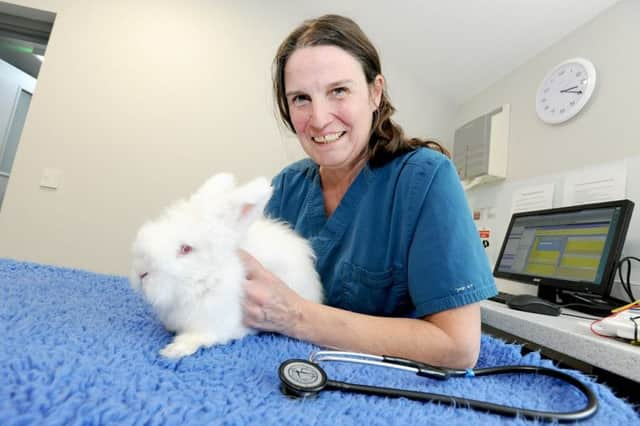Lincolnshire rabbit owners urged to vaccinate pets after fatal disease warning


Vets from Eastfield Veterinary Hospital in North Thoresby are warning owners of a virulent strain of Rabbit Viral Haemorrhagic Disease (RVHD) called RVHD-2 that can kill bunnies within days.
The practice is urging owners to vaccinate after a number of suspected cases in Louth, Grimsby and Cleethorpes - and a confirmed case near Immingham.
Advertisement
Hide AdAdvertisement
Hide AdThe highly contagious disease, which can be carried by both wild and domesticated rabbits, is often symptomless and rabbits can be found dead with no obvious signs of disease.
There is no cure for the disease, which has been reported all over the UK, and the only way to protect pets is through vaccination.
Eastfield Vets senior vet Dr Wendy Adams said: “RHVD-2 was confirmed in the UK in 2013. It is often fatal, although some rabbits have recovered with veterinary care.
“What makes RHVD-2 more dangerous than RHVD-1 is its longer infectious period, resulting in wider disease spread and there have been cases across Lincolnshire, which is extremely worrying. Both strains of RVHD are spread by direct contact with infected wild rabbits, or indirectly via urine or faeces.
Advertisement
Hide AdAdvertisement
Hide Ad“The viruses can survive for months in the environment and are easily brought home on clothing, footwear, plants, hay, the wind, and your other pets or other birds and insects visiting your garden.
“RHVD-2 is less easily recognised because there are few outward signs. Rabbits can simply be found dead or non-specifically ill. Because of this, owners often do not realise their rabbit has an infectious disease, resulting in late treatment and spread of infection to other rabbits.”
While there have been increased cases of RHVD-2, myxomatosis is still by far the most common fatal infectious disease seen at Eastfield Vets. Even indoor rabbits should be vaccinated against both diseases.
Dr Adams is urging owners to take extra precautions with hygiene and care to prevent the spread of both diseases.
Advertisement
Hide AdAdvertisement
Hide AdShe added: “It is important owners use disinfectant to clean hutches and living areas. They should disinfect boots if they are going in and out of places where rabbits are kept, wear an apron and wash their hands thoroughly before handling each rabbit.
“New rabbits should be quarantined for a minimum of two weeks and should not share anything with your current rabbits. Always wash your hands and disinfect after any suspicious illness or death.
“You should discuss the risks and benefits of vaccinating your rabbit with your vet. There is a small risk to any animal by giving any vaccination, which is why animals should only be vaccinated if they are healthy.
“Vaccination against RVHD and myxomatosis in a healthy rabbit, including indoor rabbits, is essential.”
Advertisement
Hide AdAdvertisement
Hide AdThe current UK vaccine, Nobivac Myxo-RHD, offers protection against RVHD-1 and Myxomatosis, but is unlikely to offer any protection against RVHD-2, as this strain of the virus is genetically different. It is recommended that a second vaccination be given to cover RVHD-2.
• Eastfield Vets’ warning comes as the practices prepared to mark Rabbit Awareness Week – a national event organised each year to help improve the welfare of rabbits. Rabbit Awareness Week runs from June 2-10 to encourage owners to seek help and advice on the care of their pets.